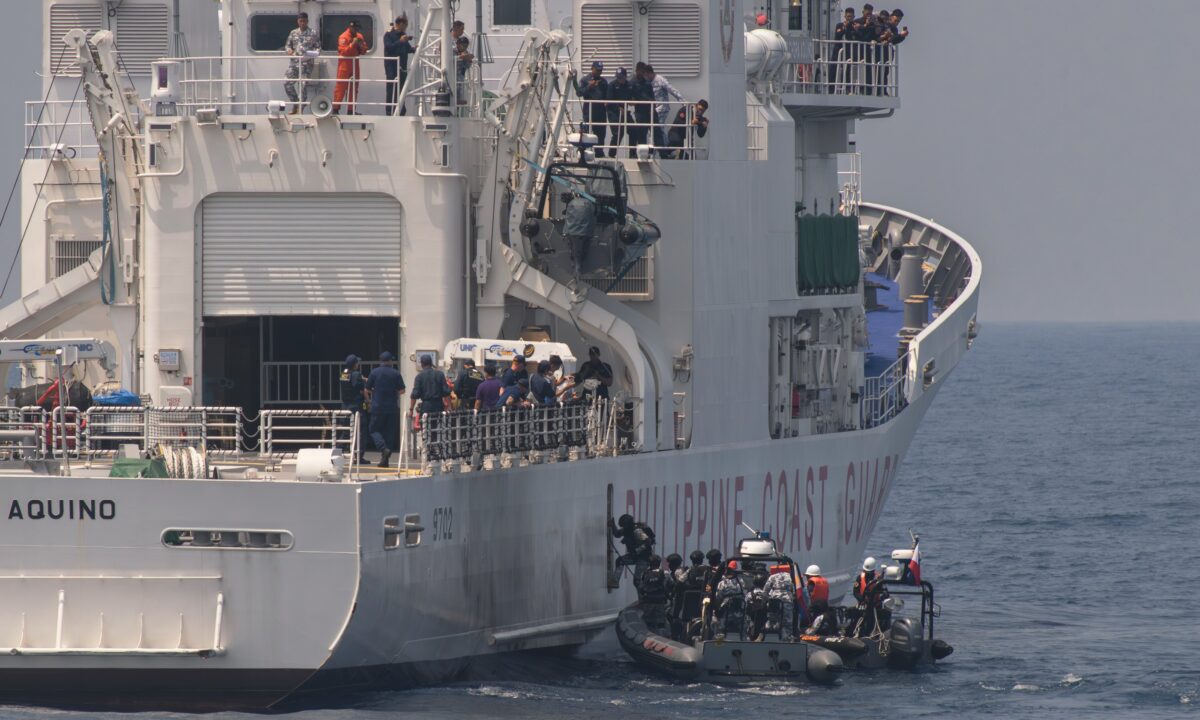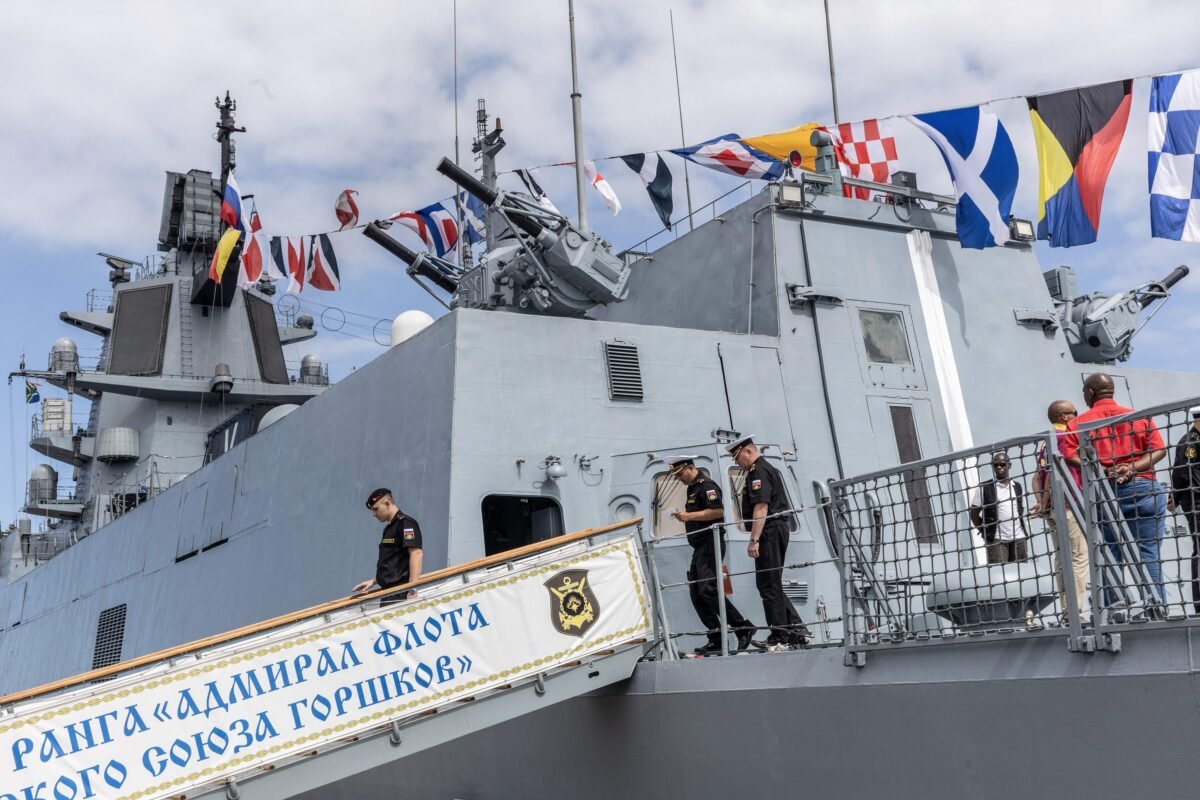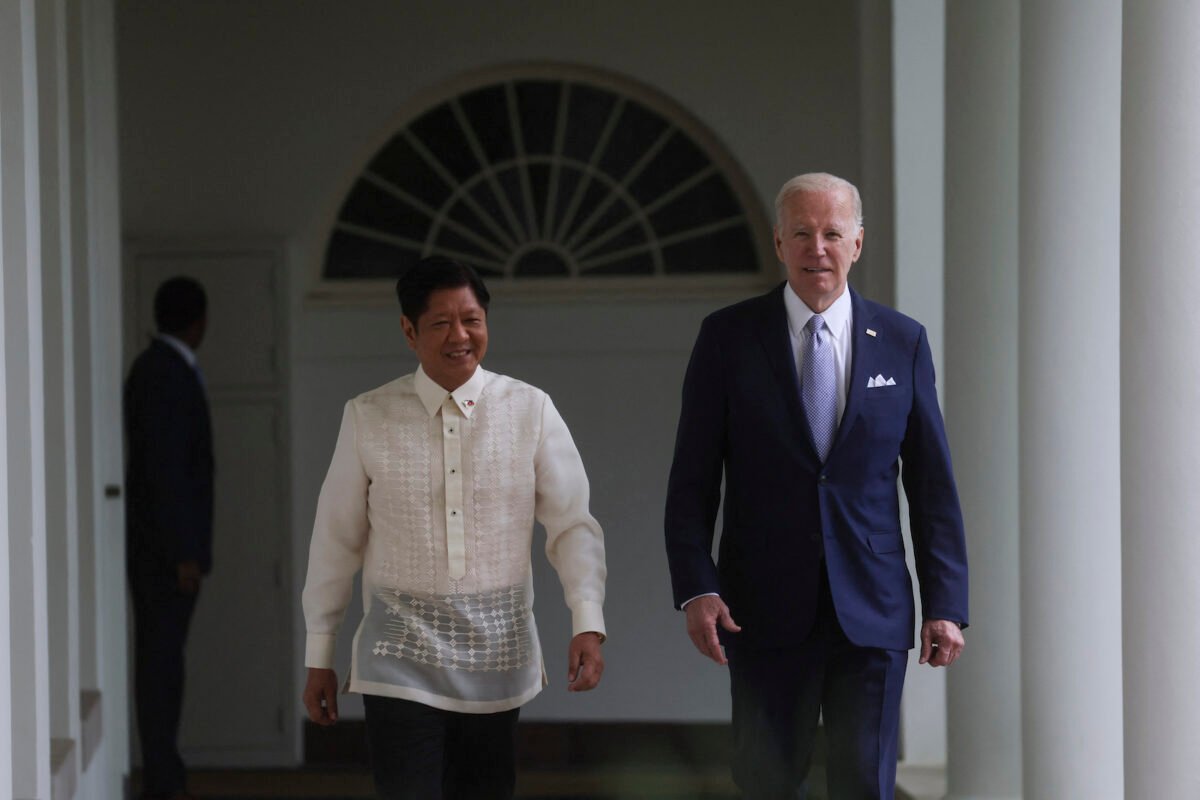Taiwan Reports Spotting 2 Russian Frigates Near Its Waters
Two Russian frigates were spotted sailing off the eastern coast of Taiwan on June 27, according to the Taiwanese defense ministry, a rare occurrence that could potentially escalate tensions in the region.
The ministry said the Russian ships were seen “sailing from south to north through the eastern waters” of Taiwan at 11 p.m. (local time) before leaving Taiwan’s response zone in Suao toward the southeast.
Taiwan’s military responded by deploying aircraft, ships, and shore-based missile systems to track the ships’ movements, according to the ministry’s statement.
The ministry did not name the vessels or specify their distance from Taiwan’s coast.
The presence of Russian ships near Taiwan is unusual. Taiwan routinely reports the movements of Chinese vessels near its waters and U.S. ships transiting the Taiwan Strait but rarely reports the sighting of Russian warships sailing on its coast.
Russian Ships Enter Philippine Sea
Earlier on the same day, Russia’s news agency Interfax reported that a detachment of ships of the Russian Pacific Fleet entered the southern parts of the Philippine Sea after crossing the South China Sea.
The ships were performing tasks as part of a long-range sea crossing, “with a demonstration of the naval presence” in the Asia-Pacific region and “as part of strengthening partnerships,” the report states.
There was no further detail on how many ships were involved. The Philippine Department of National Defense also did not issue a statement regarding the report.
The move came amid communist China’s increasing assertiveness in the South China Sea, which it claims almost entirely, and growing concerns over a possible escalation in Taiwan, which the Chinese regime views as its own and has vowed to conquer by force if necessary.
Taiwan’s military also detected eight Chinese warplanes and six naval vessels near the island at 6 a.m. (local time) on June 27, with five aircraft spotted entering Taiwan’s southwest air defense identification zone.
Moscow, which has backed Beijing’s stance on Taiwan, has been boosting Russia’s defenses in its vast far-eastern regions bordering the Asia-Pacific, accusing the United States of expanding its presence there and raising security concerns in Japan and across the region.
Philippines-Taiwan Proximity
Philippine Foreign Secretary Enrique Manalo has said that his country would bear the brunt of any escalation of tensions in Taiwan, given its proximity with the island, which sits only 90 miles from the northernmost point of the Philippines.
“Taiwan is literally next door to the Philippines,” Manalo said at the Center for Strategic and International Studies (CSIS) forum in Washington on April 10.
Jay Batongbacal, director of the Institute for Maritime Affairs and Law of the Sea at the University of the Philippines, told Benar News that Batanes, the Philippines’ northernmost province, could be entangled in a conflict if China invaded Taiwan.
“A Chinese invasion of Taiwan would require blockading and isolating [Batanes] from access by the U.S. and other allied forces. China will bombard Taiwanese defenses first before launching amphibious and air invasions,” he said.

To enhance its defense capabilities, the Philippines has granted American forces access to four new military bases, including a naval base, an airport in Cagayan province, and an army camp in Isabela—all located near Taiwan—under the Enhanced Defense Cooperation Agreement.
National security adviser Jake Sullivan met with his Japanese and Philippine counterparts for the first time in Tokyo on June 15 to discuss enhancing trilateral cooperation between their countries.
In a joint statement, the three officials concurred that “a free and open maritime order” is crucial in the Indo-Pacific region, “especially given unilateral attempts to change the status quo by force or coercion.”
Reuters contributed to this report.




